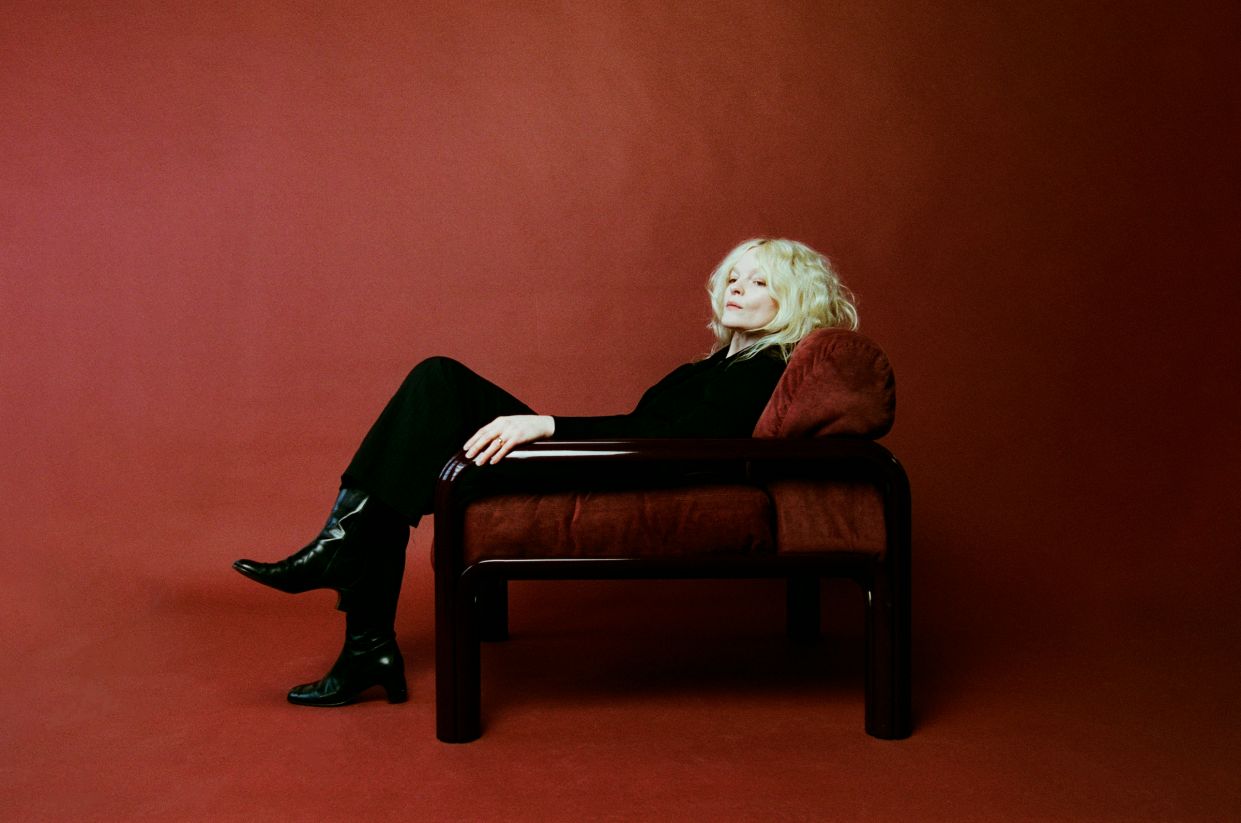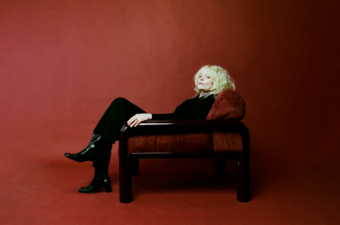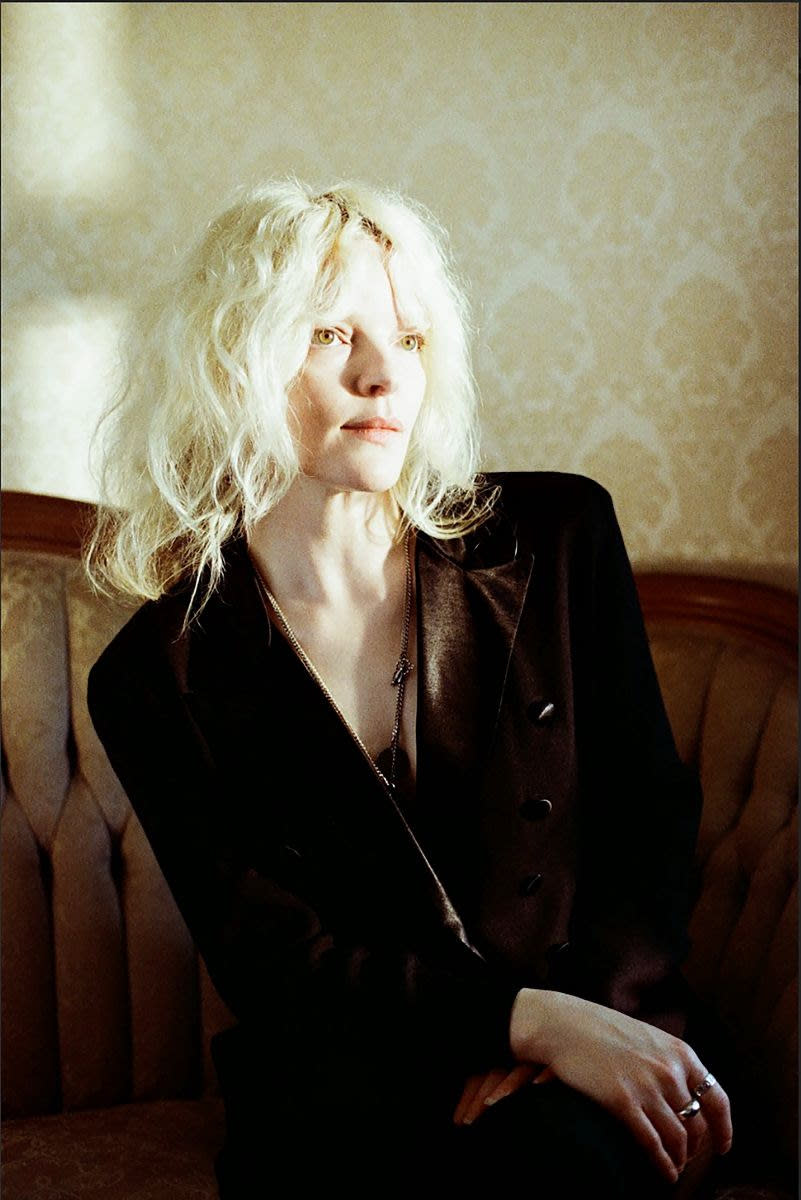Jessica Pratt Wants to Take You to the Hidden Realm


“I am calling out to you… from the n’other place,” howled Jessica Pratt back on 2012’s “Bushel Hyde.” Here her sage, smoky vocals seemed to be longing for something that exists beyond time zones and—amid an elemental, cascading guitar line that felt more like it was being played by falling raindrops than human fingers—Pratt reminded the listener: “There was a time before us!”
Pratt’s voice is often offset by the creeping feeling that something malevolent lurks in the background, haunting against the joy. Just like all the best Jessica Pratt songs (see “Moon Dude,” “Dreams,” or new track “Empires Never Know”), the atmosphere of “Bushel Hyde” is shaped through someone baring their soul by playing a Martin D-28 more like a Ouija board than an acoustic guitar.
More from Spin:

During a relaxed afternoon phone chat, the singer-songwriter examines this unique balancing act between conversing with the dead and the living. “I am a person who thinks about death a lot,” she says. “Not even in a morbid way but more around trying to go back to imagining the layers of humanity that have existed before us…and will come after us.
“One of the core truths I think that I always carry with me is imagining the history that constantly surrounds us and letting it come through me [as a melody]. Starting a dialogue with it! I guess there’s always been this connection between folk music and trying to conjure up a ghostly, haunted, unseen realm.”
Pratt’s experimental take is very much rooted in playing around with the concept of time—and exploring the idea of there being a life after death: “I’ve had a couple of dreams where I am a ghost and trying to scare people that I know—God only knows what that means! To believe in ghosts, or to even make music, period, I believe you must shut off your critical mind a little bit and be a conduit for some [mysterious] energy.”
Pratt reveals her previous music tended to be created alone at night, yet the recording for new album Here In The Pitch started in the morning, and she was often surrounded by studio musicians rather than just herself. A lot of the writing also benefited from her new house’s greener views of trees, racoons, coyotes, hawks, and mountains. Subsequently, the lyrics are more free-flowing. “I think the happiness from looking out at the trees snuck into the writing,” she says, “Definitely. [The direction of] the piano and the guitar is dictated by things like the movement of the air or rain. It’s music that’s far more connected to the earth.”
Pratt once sang about heartbreak as an omnipresent threat, but this new material (“Life Is”) has lyrics about how “the curses you keep won’t follow you now,” projecting a full-circle personal growth. “I want to be the sunlight of the century” is the smiling pep talk within jaunty single “World on a String”—and you feel like you’re witnessing an artist who is finally surfing the tide rather than fighting against it.
At best, Pratt’s previous music might have inspired a slow dance or two, but there’s bossanova undertones to “Get Your Head Out” and a waltzing merriness (“Get your head out, start your way up” go the lyrics) that feels like it’s jolting you out of a slumber. “I just think, like, time passes, and you sort of evolve as a person. I’ve become grounded and tethered to reality a lot more [with the new music],” Pratt says, surveying the noticeably sunnier output of her fourth album.
I wanted to go back to a lyric on “Jacquelyn in the Background” where you said: “Leave your bad news for a while.” Is that what you want your music to be for other people—a safe space for them to escape from all the bad news out there right now?
I’d agree with that! It’s only been recently, maybe in the last few years, where I started thinking about making music as a means of helping people, rather than it just being this sort of unexamined personal pursuit. The longer you do this for a living, if you’re lucky enough, your music reaches and touches people. Over time, you definitely do become more aware of its significance in helping other people in their lives. That particular lyric is about a certain person, but I think it can be generally applied too.
It’s really telling that the first thing you hear on this new record are those pulsating, crashing drums. To me, that’s you telling the people: Yeah, I’m on my rockstar trip, finally!
That song is full of intention, and even though it’s triumphant, it feels complicated too. Maybe the person singing this doesn’t quite believe in what they’re saying fully, you know? The language on this album is more aspirational, certainly.
This idea of calling out to someone from “the other place” on “Bushel Hyde”…there’s always been something very ghostly about your sound. I wonder, do you believe in an afterlife?
Yeah, I do believe. I think that I’m also the kind of person who can be somewhat doubtful and maybe a little depressed, but on my best days I believe in ghosts for sure. The idea of there being nothing after we pass away, even if you try to rationalize it in some way, it just feels very depressing to me. I mean, even if you’re not aware of all the nothingness when you die, it still is a scary prospect, right? As a human who enjoys living, I think it feels intuitively correct to me that there is something else, even if it’s just as simple as multidimensional energies that we don’t fully understand yet.

We were both raised by single mothers—these are the kinds of women you’ve sung about in the past with real love and as mothers “made of stone.” What was the biggest thing your own mother taught you?
She was this person who was very interested in music and wanted to play music. She did, but she was also from a generation where that was not really the standard for women; I think that she exchanged her own ambitions for the comfort and happiness of other people. She got married at 30 or whatever, had two kids, and never really got to pursue her dreams. It meant she was always pretty vocal to me about: “Don’t let yourself get distracted by things that shouldn’t be your main focus!”
My mother was a real music head, so we heard all kinds of stuff. She grew up in southern California in the late ‘60s, and she was very interested in discovering new sounds right up until she died. So it was just kind of like this constant exposure to stuff! Before I learned how to play guitar, I would write little poems and show them to my mom.
On this album, you’re doodling a lot with your voice, which I really love. To me, the most profound singers can sound like they’re making a philosophical statement, even when they’re just saying the same word over and over again.
This is something that I’ve always done. A lot of the music I am influenced by did it too. Arthur Lee does it a lot. Scott Walker, the Beach Boys, and Burt Bacharach—there’s a lot of those wordless vocals and harmonies in all their songs. Maybe when there aren’t words to detract, it sounds like the human voice is fine tuning a certain emotion. The Beach Boys were on another level with their harmonies, for sure. They were more like the spiritual building blocks of life on earth. That’s a very religious, sacred experience to listen to!
Maybe the old Jessica Pratt strayed towards melancholy, but where you’re at now, to paraphrase “The Last Year,” is a place where “it’s gonna be fine” and “the storyline goes forever.” There’s this organ on “Nowhere It Was,” and that’s obviously such a deathly, funeral type of instrument. It got me thinking, is this album a eulogy to the old Jessica Pratt, and an embrace of a rebirth?
That is an interesting interpretation. I think that there is a certain kind of deathliness on the sort of edges of all the music on this new record. There’s definitely a darkness that I feel. Even, despite the sort of poppiness or sort of upbeat nature of some of the songs, it feels like death is just kind of in there somewhere, lurking. I am definitely still trying to tap into a haunted sound.
To see our running list of the top 100 greatest rock stars of all time, click here.
